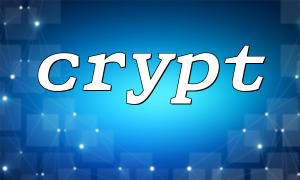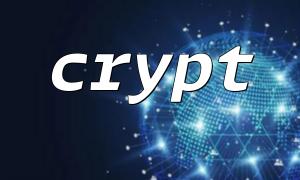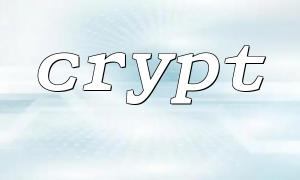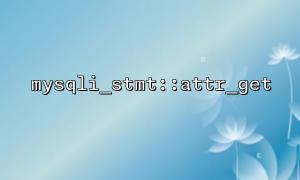In PHP, the crypt() function is a common password hash function, mainly used for one-way encryption of passwords. It combines the salt mechanism so that the same password produces different hashing results at different salt values, thereby improving security. So, is the crypt() function suitable for encrypting non-password type data? Does it still work when processing other types of data? This article will discuss in detail with PHP sample code.
The basic usage of the crypt() function is:
$hash = crypt($password, $salt);
$password : The string to be encrypted, usually the user password.
$salt : salt value, used to increase the complexity of hash.
crypt() is an underlying implementation of different encryption algorithms supported by the system, such as DES, MD5, Blowfish, etc.
From a technical point of view, the crypt() function has no restrictions on the input string, and it can generate a hash value whether it is a password or an arbitrary string. The following example demonstrates encryption of a normal string:
<?php
$data = "Hello, World!";
$salt = '$6$rounds=5000$m66.net$'; // SHA-512Add salt format,Replace the domain name withm66.net
$encrypted = crypt($data, $salt);
echo "Raw data: " . $data . "\n";
echo "Encryption results: " . $encrypted . "\n";
?>
The execution results are similar:
Raw data: Hello, World!
Encryption results: $6$rounds=5000$m66.net$CjFvGQ8qVZjXDyhKjYXKpq8N4qPjQYpHQTFxAOnO8Ul2e8xUiUObnlD4d2Kn4mRZC8U0fNKnFlcIu5nPhIVLNE0
As you can see, crypt() also generates a hash for non-password strings.
Applicable scenarios:
crypt() is specially designed for one-way hashing of passwords to ensure the security of password storage. Hash can also be generated for other types of sensitive information, but the data lacks "reversible" processing and cannot be used to encrypt and then decrypt.
limitation:
crypt() is not an encryption algorithm, but a hash algorithm, and is unidirectional. It cannot be used in scenarios requiring data recovery (decryption) and is only suitable for verifying whether the data matches (such as login password verification).
If you need to encrypt and decrypt data of non-password type, it is recommended to use symmetric encryption algorithms such as openssl_encrypt() and openssl_decrypt() . The examples are as follows:
<?php
$plaintext = "Sensitive data";
$key = "secretkey123456";
$cipher = "AES-128-CBC";
$iv = substr(hash('sha256', 'm66.net'), 0, 16);
$encrypted = openssl_encrypt($plaintext, $cipher, $key, 0, $iv);
$decrypted = openssl_decrypt($encrypted, $cipher, $key, 0, $iv);
echo "original: " . $plaintext . "\n";
echo "After encryption: " . $encrypted . "\n";
echo "After decryption: " . $decrypted . "\n";
?>
The crypt() function can be used to generate a one-way hash value for any string, including non-password data.
It is not suitable as an encryption and decryption tool for ordinary data, as it does not support decryption.
When encrypting and decrypting operations are required for non-password data, it is recommended to use special encryption functions, such as OpenSSL series functions.
The core advantage of crypt() lies in password secure storage and verification.















